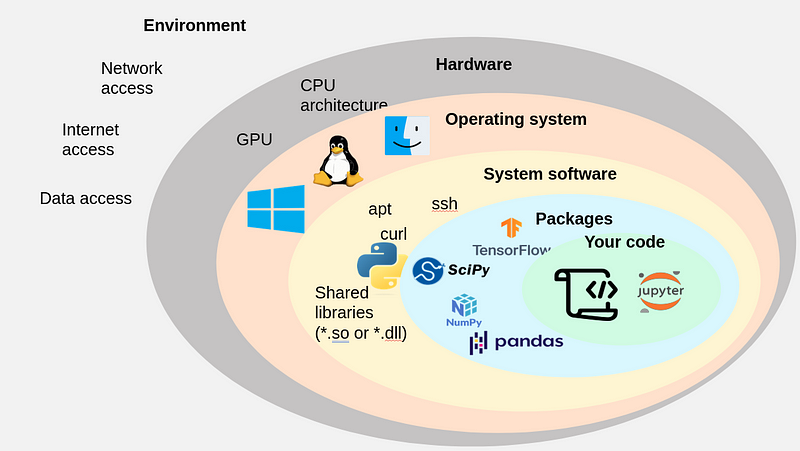marimo-team/marimo: A reactive notebook for Python — run reproducible experiments, execute as a script, deploy as an app, and version with git.
Link: marimo-team/marimo: A reactive notebook for Python — run reproducible experiments, execute as a script, deploy as an app, and version with git.: "A reactive notebook for Python — run reproducible experiments, execute as a script, deploy as an app, and version with git. - marimo-team/marimo: A reactive notebook for Python — run reproducible ..."
An impressive "rewrite" of Jupyter Notebooks which has more logical "recalc" rules.
Find Out Why Health Insurance Denied Your Claim

Link: Find Out Why Health Insurance Denied Your Claim: "You likely have the right to access records that explain why your insurer denied your claim or prior authorization request. Use ProPublica’s free tool to generate a letter requesting your claim file from your health insurance company."
We all will get a claim rejected at some point. Sometimes not a very big deal, other times a huge deal. This web site is recommended as a tool to figure out what happened and how perhaps get the decision reversed.
1991 NeXT User Group Meeting
Link: 1991 NeXT User Group Meeting: "A very old blog"
Linked is a very old article I came across about the early days of the NeXT computer and Lotusprov.
Coding with AI is not all that
I am a long time software engineer and of late college professor. I’ve done a lot of programming and recently have been using AI (I will use that term generically, but for me it is Claude.ai) to assist. I have thought of it as a super-duper Stackoverflow which instead of returning a series of semi-useful posts, actually gives me working code. It is truly remarkable and I use it every single day.
As a teacher, I have encouraged students to think of AI as a power tool which they need to learn to use. Some other teachers treat the use of AI as “cheating”. For me it is no more cheating then using google to search. However…
Of late I have discerned a dark pattern which I had not identified before. And this applies to students but to myself as well. AI in coding gives a nice sugar high. Instead of thinking and understanding how my code works or how a new API works, it is so easy to get the code from AI and just try it. I recently dug into async in Python which I had not used before and that was the trap I fell into.
Now we all know that the code that AI is n to necessarily correct. But it may look almost correct, in that it is syntactically right and sort of works usually.
The problem is that while it an almost correct piece of code it is often the totally wrong solution to your problem. In other words, it often sets you on the wrong path. A dead end. The trap is that you spend your time debugging an approach that is totally wrong.
When does this happen? I find that it happens when I am tackling something I don’t really understand and want a shortcut to my sugar high. Upon reflection I have found more than once that I spent hours debugging an approach which, once working, I realized was all wrong and I had to start over.
So my lesson is: beware of using code generated by AI, not just because it may be “wrong” or “buggy” but because it sends you in a wrong direction and you end up with a cul-de-sac solution which is sub optimal and in the end you will have to rewrite.
Random Nerd Tutorials | Learn ESP32, ESP8266, Arduino, and Raspberry Pi

Link: Random Nerd Tutorials | Learn ESP32, ESP8266, Arduino, and Raspberry Pi: "Random Nerd Tutorials helps makers, hobbyists and engineers build electronics projects. We make projects with: ESP32, ESP8266, Arduino, Raspberry Pi, Home Automation and Internet of Things. If you want to learn electronics and programming, you're in the right place."
I just came across the linked catalog of free tutorials. Looks like it could be very useful! Arduinos, Raspberry Pis, and more.
A Comprehensive Guide to Python Project Management and Packaging: Concepts Illustrated with uv – Part I – Reinforced Knowledge

Linked is a useful and comprehensive series about packaging in python. The fact that there are so many of these is evidence that, a) I am still confused about some of this, and b) the state of packaging in python is and remains a mess. I don’t know how we are going to get out of this?
Why pipes sometimes get "stuck": buffering
Link: Why pipes sometimes get \"stuck\": buffering: ""
Linked is another bit of esoteric practical research by Julia Evans, this time about pipes in the Unix shell. Useful bit of esoterica.
1969: Can You Land on The Moon? • A Python turtle Lunar Lander

Link: 1969: Can You Land on The Moon? • A Python turtle Lunar Lander: "Revisiting one of my favourite projects: a lunar lander using, yes, the one and only turtle module"
Linked is an article about the “turtle” Python package. It’s a simple and elegant API for creating simple visual animations, simulations and/or games. I had never come across it before and it looks like a good addition to my toolkit.
Ronynn's Blog Overthinking Analytically - Game Development, Tech, Productivity & Writing

Link: Ronynn's Blog Overthinking Analytically - Game Development, Tech, Productivity & Writing: "Explore Ronynn's insights on game development, tech, productivity, and writing."
Attached is an article that is guaranteed to be clickbait for my people. Certainly for me! I use both Ruby and Python. Lately more python because the stuff I am working on uses Python. And let’s face it Python is, generally speaking, a more mainstream language. I don’t find the arguments made in the attached article especially compelling. I would say that Ruby and Python are more similar than different but in the end, for many reasons, I would use Ruby if I had a choice.
Niels Cautaerts - Python dependency management is a dumpster fire

Link: Niels Cautaerts - Python dependency management is a dumpster fire: ""
Attached is yet another article that tries to clarify the options for python package management. The problem is that this space is dynamic and overpopulated, so any article quickly becomes out of dare.
